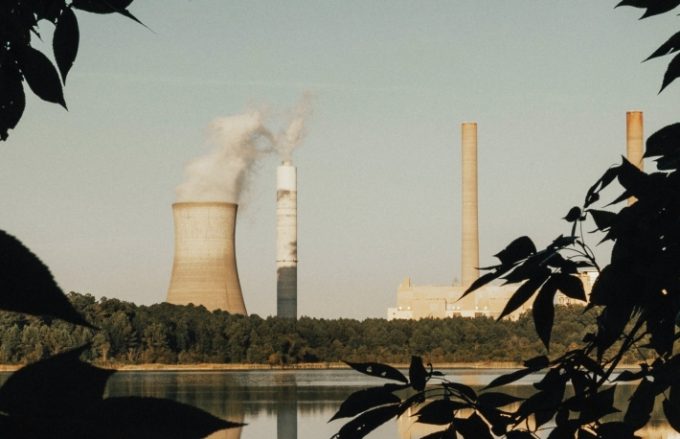You can appreciate fiat’s secondary footprint from any street corner on Earth: 80,000 bank branches and 470,000 ATMs in the U.S. alone, along with forests of skyscrapers that dominate every city on the planet. Then the part we don’t see: Finance and insurance are 8.4% of the gross domestic product in the U.S., only slightly behind manufacturing. That means millions taking the subway or driving to the office – or, the pandemic equivalent, firing up an army of laptops and call centers – to sling paper money under fiat’s harsh fluorescent glow. Visa transactions don’t even come close.
And that’s on the good days. Because, when it comes to fiat, there are a lot of bad days. Fiat money has caused a recession every 5.6 years, to be precise, in the U.S. since the Federal Reserve’s founding, by manipulating the pace of money creation that drives the boom-bust cycle. Beyond the human toll, each recession has brought trillions in wealth destruction, wealth that took an enormous amount of resources and, yes, an enormous amount of carbon to create.
To translate this recession cost into something that can be compared to Bitcoin, I relied on the most mainstream estimates of the carbon cost of a dollar of GDP – about 5,000 BTU (British thermal units), or 1.5 kWh (kilowatt hour), per dollar. Then, using the Federal Reserve’s own estimate of $11 trillion destroyed peak to trough in the 2008 crisis – the very crisis that inspired Satoshi to create Bitcoin – you simply multiply the two. That comes out to 16,500 TWh (terawatt hour) of carbon equivalence destroyed during that single recession. Accounting for the rest of the world, that might triple. Accounting for the other 16 recessions the Fed has given us – with more to come – makes it astronomical.
The modern recession and the boom-bust cycle that drives it is entirely a creation of fiat money. Governments intervene in the allocation of capital, randomly starting and stopping a fire hose of credit that whipsaws the real economy and destroys real lives. Just as the cost of a five-second delay in a footrace can be measured in distance lost, the cost of a recession can be measured by the resources it will take to rebuild lost wealth. Bitcoin, by taking purchasing power out of central banks’ manipulation space, can reduce or even eliminate their ability to cause boom-bust cycles.
Even Bitcoin’s worst critics allege the distributed network consumes no more than 86 TWh per year, of which perhaps 16 TWh might be Americans, with much of that green energy. It would take between 500 and 1,000 years for Bitcoin’s energy use to even approach the 2008 crisis alone. With another recession permanently on the way, over and over again. That 500 to 1,000 years’ worth of energy goes on top of the 8.4% of GDP, the 80,000 bank branches and 470,000 ATMs and those skyscrapers.
These ratios suggest that central banks are vastly more polluting than Bitcoin, indeed more polluting than the worst industrial offender you could imagine. Bitcoin, by implication, is among the most green technologies humanity has ever invented. Indeed, if Bitcoin even slightly reduces central banks’ ability to cause recessions, it could pay back every watt many times over. For example, if Bitcoin reduces the odds or magnitude of central bank recessions by just 2%, Bitcoin would actually save us far more energy than it uses – it would be net carbon negative.
Of course, collateral damage from fiat doesn’t end at recessions. Inflation, business cycles and money printing lead to economic chaos and human misery, bailouts of politically connected industries and fiat-subsidized wars – with carbon footprints and human costs all their own. Fiat money perverts the natural symbiosis between taxpayer and tax collector, whereby governments do well when we do well, by allowing governments to magic up what they need via the printing press.
Given we live in a world of irresponsible governments, bankers with senators on speed dial and still-immature altcoins, Bitcoin remains the safest bet for reducing the enormous energy waste and human cost of rebuilding our economy over and over again.
Skipping the roof on your new house may be green in the moment, but not if you have to rebuild every 5.6 years. If you really do prioritize the environment, help Bitcoin shut down the most polluting industry on Earth: central banking.





